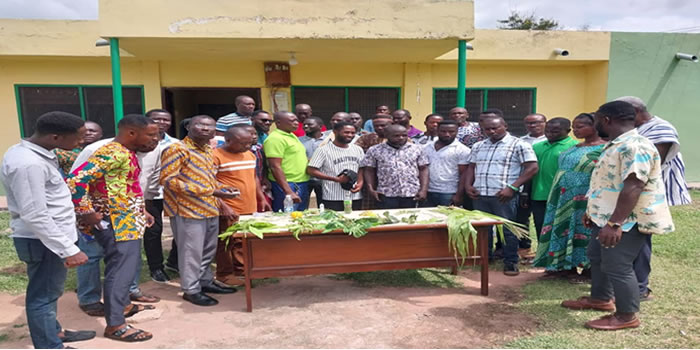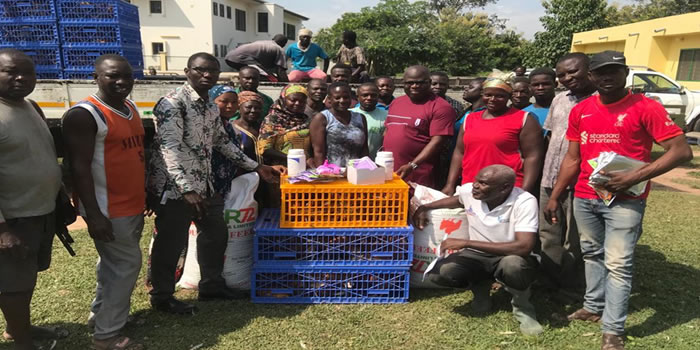

AGRICULTURE
Department of agriculture carries out survey on food security and nutrition
The Atebubu-Amantin municipal office of the Department of Agriculture has conducted the Food Security and Nutrition Monitoring System FSNMS for the first quarter of 2023.

Date Created : 2/21/2023 12:00:00 AM : Story Author : Daniel Oduro-Stewart/Ghanadistricts.com
The FSNMS is an upscale of the Comprehensive Food Security and Vulnerability Assessment carried out in 2020 by the Statistics, Research and Information Directorate of the Ministry of Food and Agriculture and the Ghana Health Service with the objective of generating food security and nutrition data to help assess the impact of Covid-19 on food and nutrition status of the people.
This is done through monitoring and analyzing food availability, access and utilization, identification and monitoring risks and opportunities for household food security, collection and analysis of key nutrition indicators for trend analysis and providing timely and relevant information for decision making.
The survey which looked at selected households at Amantin, Kokrompe, Yaw Tuffour and Atebubu Zongo no. 2 involved a total of 42 randomly picked household heads made up of 15 males and 27 females.
It focused on food consumption in terms of dietary diversification, sources of food and food groups, livelihoods and coping strategies, reduced coping strategies, household hunger scale, shocks in terms of droughts or the impact of covid-19 and agricultural production.
Sharing the findings, Mr. Collins Amedofu, the Management Information Systems officer of the Department who conducted the survey said food and nutrition conditions for the period reviewed was stable.
He said about 95% of households sampled were food secure and practiced good nutrition through the consumption staples and vegetables everyday, frequently accompanied by oils and pulses and occasionally meat, fish and diary.
The survey showed that a high percentage of households did not consume fruits 7 days prior to the engagement whiles 85% of households indicated that harvest from the 2022 minor season can last for 3 to six months for household consumption.
On the main challenges encountered during the last planting season, respondents spoke about the high cost of fertilizers, agro chemicals, fuel and transportation, frequent price fluctuation as well as the effects of pest and diseases for both crops and animals.
They also mentioned crop failure, bushfires, destruction of crops by cattle, the lack of credit as well as inadequate and high cost of tractor services.
Whiles the exercise showed an improved access to veterinary services, it brought to the fore gaps in general extension due to inadequate agricultural extension agents.
On recommendations made to farmers to ensure the goals of the FSNMS are achieved, Mr. Amedofu said they were advised on the benefits of the consumption of diversified foods and consider proper planning for the upcoming planting season taking into consideration their financial strength in the face high cost of inputs.
The farmers were also encouraged to come together to form Farmer Based Organizations in order for them to be able to access credit from financial institutions, adopt improved and secured animal housing to reduce the incidence of theft as well as access chemicals at the Plant Protection and Regulatory Service office at the Department of Agriculture during the planting season.










 facebook
facebook
 X
X
 Youtube
Youtube
 instagram
instagram
 +233 593 831 280
+233 593 831 280 0800 430 430
0800 430 430 GPS: GE-231-4383
GPS: GE-231-4383 info@ghanadistricts.com
info@ghanadistricts.com Box GP1044, Accra, Ghana
Box GP1044, Accra, Ghana